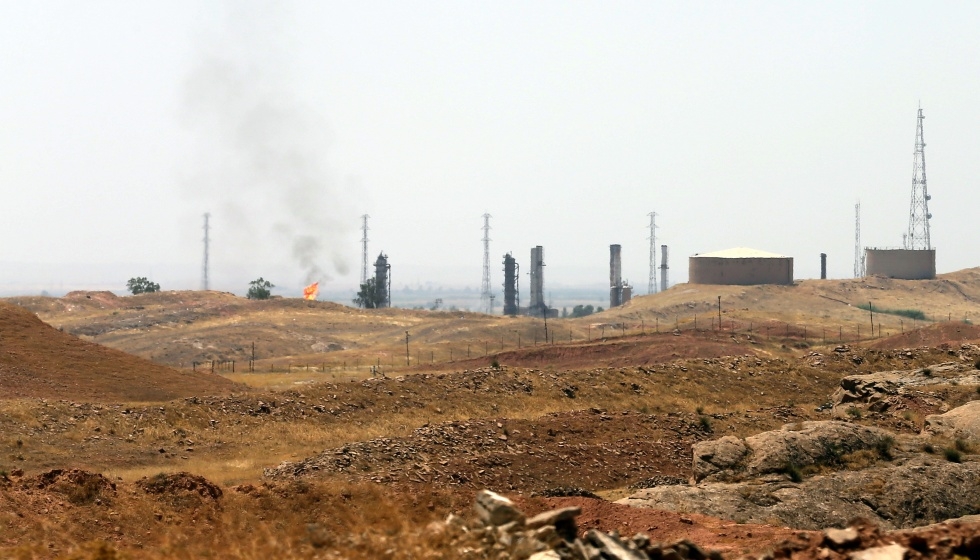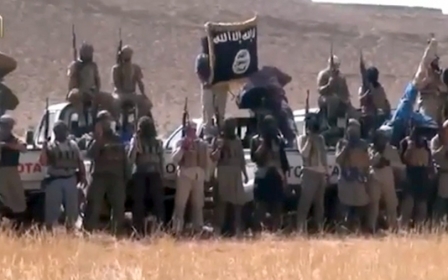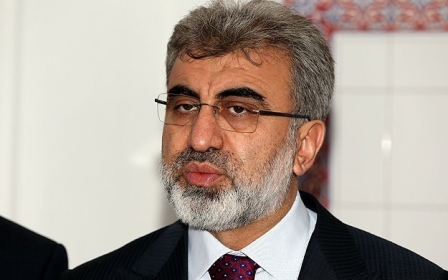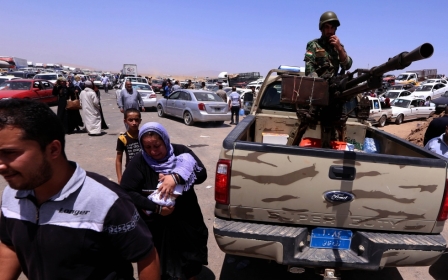Militants sell oil from captured Iraqi regions, as price hike predicted

Militants associated with the Islamic State (IS) have started selling oil extracted from regions of Iraq where they have seized control from the central government, according to reports out on Tuesday.
“The oil extracted from wells close to Hamrin Mountains and Baiji refinery, is being smuggled to black markets,” Selal Abdul, head official in Tuzhurmatu, in the northern Salahuddin province, told Turkish Anadolu Agency.
Abdul said every day hundreds of tankers are being filled with oil extracted from the Hamrin Mountains, which have been under IS control for a week. IS until recently referred to itself as the Islamic State in Iraq and the Levant (ISIL) but on Sunday announced that it had formed its own state on the territory it had seized and was enacting its vision of recreating an Islamic Caliphate.
“ISIL militants are selling the oil to anyone available, to get money for their weapons and ammunition,” Abdul said. .
Ali Huseyni, deputy head for Tuzhurmatu district council, said the oil extracted from Hamrin Mountains used to be sold to Iran through the autonomous Kurdish Regional Government.
“However, when the Kurdish side discovered that the oil was being sold by ISIL militants, they stopped transferring the oil. Now the oil is purchased by other sources which is not yet identified,” Huseyni said.
French Foreign Minister Laurent Fabius stated at a press conference on Monday that IS rebels are selling oil captured from fields in Iraq to the government of Syrian President Bashar Al-Assad.
In Tikrit, in northern Iraq, there have been conflicting reports regarding the control of the Baiji oil refinery which is at the heart of the controversy.
After a 10-day assault between Iraqi security forces and Sunni fighters, rebels led by the Islamic State claimed on 24 June that they captured Baiji, Iraq’s largest oil refinery and offered Iraqi troops safe passage in exchange for their weapons.
The Iraqi foreign minister, Hoshyar Zebari quickly denied these claims, saying that the Iraqi government was in full control of the site. However, the IS fighters still maintain that they are in control of parts of the site and aim to take over the whole refinery.
If the militant group’s claim are confirmed, the Iraqi government may be facing turbulent times ahead, say analysts.
“Baiji supplies a third of Iraq’s gasoline consumption and provides a tenth of the country’s power demands. If reports regarding Baiji are confirmed, the Iraqi government will have to increase its import of gasoline,” Justin Dargin, energy and Middle East scholar at the University of Oxford, told Middle East Eye.
"The government sells fuel at prices far below those on global markets. If refining in Baiji is halted, Iraq will be forced to import gasoline and diesel fuel at high international prices and distribute them for sale at very low domestic prices, creating a huge loss for the state," Jim Krane, fellow for energy studies at Rice University's Baker Institute, told MEE.
Even if IS rebels’ claims are not verified, the IS-affiliated insurgency which seized vast swaths of land in northern Iraq since 15 June, threatens to derail the Iraqi government’s economic plans.
Iraq currently pumps around 3.3 million barrels of crude a day and had been expected to reach 8 million barrels by 2035, according to the Paris-based International Energy Agency.
“Iraq has plans – requiring $58bn in investment - to increase its oil production dramatically, and rival Saudi Arabia and Iran on the international market. Because of the insurgency, the Iraqi government will have to redirect its finances towards the security services,” added Dargin.
The fear is now that the Iraqi crisis may destabilise international oil markets. It has already lead to an increase in price, although hikes have so far not been on the scale seen in previous Middle East conflicts, such as the jump markets experienced during the Libyan revolution in 2011.
“The collapse of Iraq would bring an international oil crisis,” Dragan Vuckovic, president of Mediterranean International, an oil service company that supplies state oil companies in Iraq, told the New York Times.
“It would mean crude oil would go up to $150 a barrel. It could spread unrest to Saudi Arabia and Kuwait.”
Middle East Eye propose une couverture et une analyse indépendantes et incomparables du Moyen-Orient, de l’Afrique du Nord et d’autres régions du monde. Pour en savoir plus sur la reprise de ce contenu et les frais qui s’appliquent, veuillez remplir ce formulaire [en anglais]. Pour en savoir plus sur MEE, cliquez ici [en anglais].




